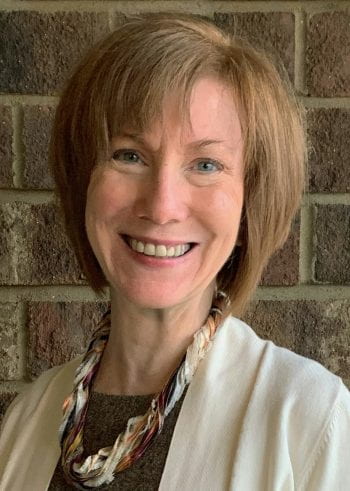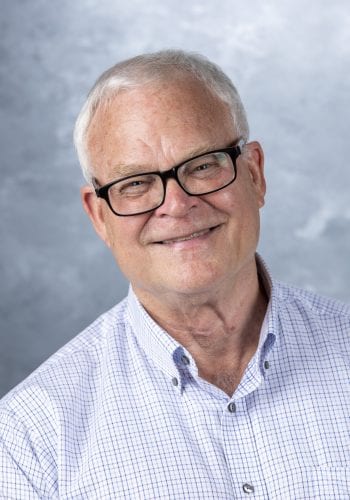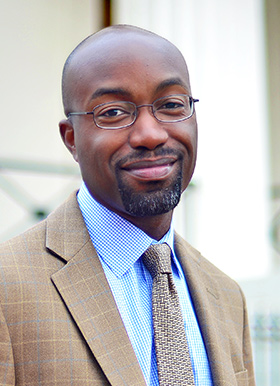On Wednesday, January 22, 2020, Missouri became the newest state to take up legislation for a statewide Child Development Account (CDA) policy.
Filed by Rep. Jonathan Patterson, the bill creating the Missouri Children’s Savings Account Program would automatically open a Show-Me Child Savings Account with a $100 seed deposit for every resident born on or after January 1, 2021.
Patterson’s filing represents the culmination of considerable work by State Treasurer Scott Fitzpatrick, who drew upon insights from CSD research and discussions on that research with Margaret Clancy, policy director with the Center for Social Development (CSD) in the Brown School at Washington University.
Origins of an idea
In 1991, Michael Sherraden’s Assets and the Poor proposed a national policy of universal, at-birth accounts for children, with a substantial initial deposit for each account and supplemental contributions to those of disadvantaged children. Sherraden is George Warren Brown Distinguished University Professor at Washington University and the founding director of CSD.
Asked to comment, Sherraden said, “Creating a CDA policy is like setting up a plumbing system. Grandparents, corporations, philanthropy, and government can all contribute to a child’s account, but you need the system first. Once the pipes are there, the water can flow through them.”
Developments outside of academia and public policy heightened the salience of Sherraden’s concept.
In September of 2015, a year after the death of Michael Brown and subsequent events in Ferguson, Missouri, the Ferguson Commission issued a report recommending a statewide CDA policy. Tasked with creating a path toward racial equity in the St. Louis region, the commission called for expansion of the MOST 529 Matching Grant Program, offered by the state’s 529 college savings plan, so it could serve as “a platform for progressive universal Child Development Accounts that are statewide and automatic.”
The report identified the Missouri state treasurer as one of several parties accountable for progress on the recommendation and suggested the need for an organization devoted to building capacity for a public-private partnership on the proposal.
Such an organization emerged from follow-up meetings held at Washington University in 2015. Organized by Health Equity Works, the St. Louis Regional CDA Coalition was cosponsored by numerous regional partners, including Washington University, CSD, Forward through Ferguson, and Health Equity Works. The coalition launched study to assess the feasibility of a CDA policy for the region.
Jason Purnell, associate professor at the Washington University’s Brown School, director of Health Equity Works, and faculty director with CSD, described the coalition’s initial meetings with potential funders. “You ask them, ‘How would you feel about putting money towards this?’ And there were several who were willing to make seven-figure commitments to this, but several have also said, ‘I’d be more interested in seeing this happen at the state level. I’d be more interested in seeing something … that benefits all the children of the state of Missouri.”
The coalition, Purnell said, was “very fortunate to have funders who were also flexible enough to let us do that pivot to a statewide initiative.” An early member of the regional coalition, Purnell was instrumental in the regional effort’s transformation into the Missouri CDA coalition, and he serves on the statewide coalition’s leadership committee.
A series of conversations
Clancy and Fitzpatrick sat down to discuss state CDA policies on a rainy Wednesday in April 2019. They met at Washington University on Fitzpatrick’s 100th day in office.
Before his appointment to the treasurer’s post in January, Fitzpatrick was the chair of the House Budget Committee and had served in the state’s House since 2012. He has been one of the state’s leading proponents for MO ABLE, the state program offering tax-free investment accounts for people with disabilities.
The treasurer understood the state’s finances and the legislative process. He wanted to know about CSD’s research on CDAs.

Clancy, one of the nation’s leading experts on CDAs, was working then with Nebraska Treasurer John Murante on legislation for such a policy, and it would pass unanimously in May. Prior to her work in Nebraska, she advised policymakers on the development of Pennsylvania’s Keystone Scholars program and the Illinois Higher Education Savings Program. Her efforts in California would shape the Kids Investment and Development Savings program enacted in the second half of 2019. The universal, at-birth policies in all four states were informed by evidence from an experiment she oversees.
Evidence for building policy
SEED for Oklahoma Kids (SEED OK), a randomized statewide test of a CDA policy in Oklahoma, has been directed by Clancy and Michael Sherraden since 2007.
SEED OK findings have shown that CDAs shape family life in numerous positive ways, influencing parenting, maternal mental health, social development, and financial and other outcomes, while accumulating resources for postsecondary education.
The findings have informed state CDA policy over the past decade. Efforts in Maine, Rhode Island, and Nevada, as well as those in the four states with statewide policies – Pennsylvania, Nebraska, Illinois, and California – laid the groundwork for the policy developments in Missouri.
Clancy and Fitzpatrick continued their conversations throughout 2019. In June, the treasurer participated in the sixth annual Child Development Account Forum at Washington University, an event he cosponsored with CSD. The center has partnered with the Missouri Treasurer’s Office to host the annual events since 2015, but Fitzpatrick came with detailed questions.

At an August meeting with his staff and Clancy, Fitzpatrick turned to the specifics of a proposal and potential sponsors for legislation. A member of the Missouri CDA Coalition’s leadership committee, Clancy worked with the treasurer’s office and coalition members to share developments with stakeholders through the state. During a December meeting, the coalition outlined plans for a legislative effort during the state’s 2020 session.
How it would work
When a child is born in Missouri, the state’s Department of Health and Senior Services collects vital records information. The bill directs the department to transmit some of that (names, address, and date of birth) to the state treasurer’s office, which would contact the child’s family about the program and automatically enroll the infant unless parents opt out. The treasurer’s office also would communicate how families can access account balances and details online.
Enrolled children would receive a Show-Me Child Savings Account with a $100 “scholarship.” With additional deposits and market appreciation, assets would grow in these long-term investment accounts until accessed for trade school, community college or university. Like all statewide policies, the Missouri program would manage its CDAs through the state 529 college savings plan.
Additional details:
• State Treasurer Scott Fitzpatrick’s office would oversee the program.
• Show-Me Accounts would be structured as 529 college savings accounts within MOST, Missouri’s 529 Education Plan.
• Children adopted by Missouri residents also would be eligible for accounts.
• Funds in the accounts would be exempt from the tests used to determine eligibility for public assistance.
• When a beneficiary reaches age 30, any unused assets in the account would go back to the program fund.
• The Missouri CDA Coalition estimates that approximately 75,000 Missouri newborns would receive accounts each year.
As the legislature began its work on the bill, Clancy expressed optimism. “This bill has the support of legislators from both sides of the aisle.”
She added, “Evidence from CSD’s SEED OK experiment documents the profound ways in which assets set aside early can shape trajectories, particularly those of children from the most disadvantaged families. Policymakers see these accounts as potentially impactful investments in the future of our children and the state’s workforce.”
Credit: Main photo by Gelani Banks on Unsplash.


